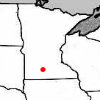
scmn | Profits are the result of gross revenue-gross expense. Revenue comes from those that do business with the co-op. If the majority of the revenue is coming from the patrons doing business with the co-op and a small portion is coming from other sources (e-plant and convenience store) then the patrons are likely the contributors of the profits. If the majority of the profits are from non-patron business at the convenience store then good for the co-op; the trouble with this would be the if the co-op violates the rule of 85 and loses tax exempt status. This is not really an issue with small profits, but when they get into the millions there is a huge incentive to meet the rule of 85. Several co-ops have sold off convenience stores because the tax savings from meeting the rule of 85 were far greater than the income and profits generated from the convenience stores; most convivence stores generate less than 15% of the co-ops income so I doubt the convenience store is the reason for the 8% dividend.
What happens if my coop has the same price as everyone else and still pays an 8% dividend?
Sounds to me like your co-op is not competitive if they are paying that 8% dividend year over year. Being the same price as everyone else when you could sell lower or buy higher is not being competitive.
Same with Farm Credit, or whatever the local branch is called. Last year my dividend check came to a sizeable amount of money, maybe 10-20% of my interest paid in.
Farm Credit may be cheaper than everyone else, but they could also be more competitive by backing rates off even more if they are paying out a 10-20% dividend every year. If the dividend is normally 1% and last years was 20% I see no issue, but if every year is 10%+ then there is room for adjustment.
Here is a question for you:
Would you be happy with me if I over charged you for hay by $10,000 an I agreed to repay $2,000 immediately and repay you the remaining $8,000 in 20 years? or 15 years? or 10 years? I suspect the answer is 'no' because you will not make any interest on your $8000, but this is no different than dealing with a co-op that pays you $2,000 of your $10,000 dividend every year while sending the remaining $8,000 to revolving equity and paying in back in 10, 15, or 20 years; yet everyone will jump up and down for that opportunity at the co-op because the co-op overcharged them $10,000 in the first place but they were content to pay that $10,000 because they were priced the same as everyone else. Had the co-op sold lower/bought higher they would not have had that $10,000 to give you, but you would have that $10,000 in your pocket now vs $2,000 now and $8,000 in 20 years. Everyone is happy when they find a way to save $1,000 on seed or fuel or fertilizer but none seem to care if the dealer is making $11,000 off of them but they would be even happier if they saved $11,000 and the dealer only made $1,000; the difference is the co-op gives them back $10,000
I would much rather the co-op cut the prices/raise the bids by a little so they are more competitive than pay a big dividend. If being more competitive increases the volume of business that the co-op does because they are more competitive that will result in a dilution of overheads beyond the budget and in return increased co-op profits resulting in a dividend = more money in the patrons pocket than just holding prices and paying a dividend; if business volume does not increase the patrons still benefit by having more money in their pocket.
My original point was I have no problem doing business with a co-op that is competitive, but I am not going to do business with a co-op just to get a dividend. A co-op dividend is not guaranteed, but when co-ops are routinely pay huge dividends that means they could be more competitive.
Around here the co-ops that continually pay a 5-15% dividends are usually less competitive than the ones that occasionally pay a 3-5% dividend. It is a lot like and employee working for a company: the ones that routinely give 10-15% bonuses tend to pay 10-15% less than their competitors that have the occasional 3-5% bonus on their good years; in the end the employees getting 85-90% pay and a 10-15% bonus every year tend to make 98-99% of the employees at the higher paying companies that occasionally pay a bonus and it ends up even less on the years those companies pay a bonus.
|


 Fertilizer dilemma
Fertilizer dilemma